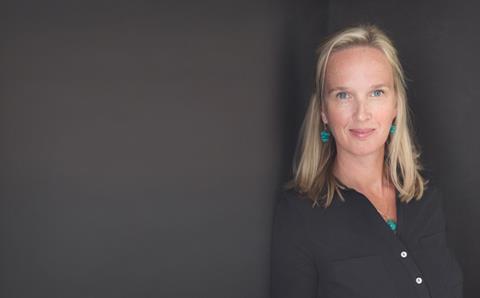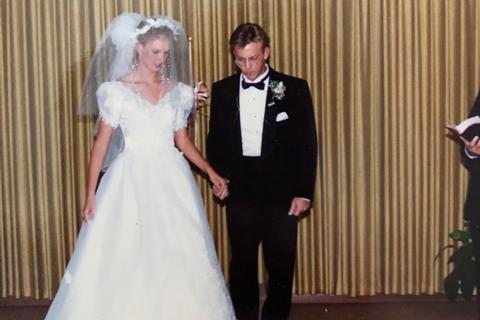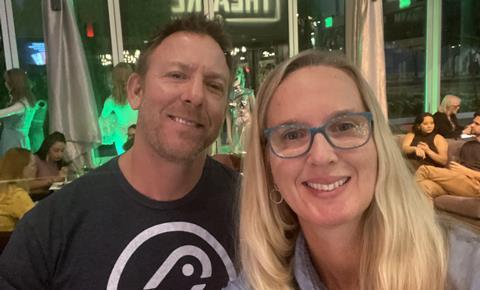Sheila Dougal shares what God has taught her about being what some may call, “unequally yoked”

I sat in church alone, which has been the case for 30 married years. My pastor made a statement about how we often think we love someone because they make us feel good. “But that’s not love,” he said. “Love is sacrifice.” ‘Amen’s rose in my soul, because I knew his statement to be true.
Learning to love
My marriage has been plagued with many difficulties. The greatest being that my husband, although baptised in the Church, does not share my faith in Christ. Learning to traverse this Everest between us is teaching me what love really is.
The Bible says mountainous things about love. It states that God is love (1 John 4:8) and reveals that love is the greatest commandment of God. We are to love God with our entire being and love our fellow humans as ourselves. The entirety of God’s law hangs on the fruitful tree of love (Matthew 22:37-40).
Marriage is a garden where, if we are willing, God can grow his love in us
Jesus taught, as he washed his fledgling disciples’ feet, that we should love one another as he has loved us: lowering himself, being willing to expose our dirt and engage in the dangerous work of dealing with sin, bearing the cost to forgive (John 13).
As a Christian, the summary of the call on my life is to love others like Christ has loved me. Marriage isn’t the only means by which we learn to love. But marriage is a garden where, if we are willing, God can grow his love in us.
So what does it look like to learn to love in a marriage to a man who doesn’t worship Jesus? Let me tell you about the three main areas where I continue to see God helping me learn to love my husband well.

Faithful repentance
God is teaching me to be faithful to the work of love. And because I have failed to faithfully love, much of my faithfulness is a faithfulness to repent. To admit when I’m wrong. To seek to repair and heal what I’ve damaged in our relationship by my own sin.
A major difference between my husband and I is this conviction of sin I cannot ignore. When I’ve been dishonest or spoken harshly, the Holy Spirit compels me to confess and seek forgiveness rather than hide or try to justify my actions.
One of my favourite books is A Long Obedience In The Same Direction by Eugene Peterson (IVP). I’ve often thought that, for me, the title should read: A Long Repentance In The Same Direction. I may spend my entire life seeking to obey God in loving my husband as I love myself, but I will fail to do it. And so I will always need to be willing to humble myself and practice a lifetime of repentance.
Sacrifice my desires
I cannot seek to follow Jesus in loving my husband well without being willing to live a life of sacrifice. Jesus said: “Whoever wants to be my disciple must deny themselves and take up their cross and follow me”
Sometimes, the sacrifice in loving is opening ourselves up to the possibility of being hurt. In a recent article for Christianity Today Jen Pollock Michel wrote: “It’s a risky business, this thing we call love. Unfortunately, in our cultural environment today—when personal safety is prized so highly—I fear we grow less and less tolerant for the normal bruising that happens in the contact sport of human relationships. We will love insofar as we are never hurt.” But, as CS Lewis wrote in The Four Loves: “Love anything and your heart will be wrung and possibly broken.”
A major difference between my husband and I is this conviction of sin I cannot ignore
In our 30 years of marriage my husband and I have suffered the pain of angry words. Our hearts have been wrung and broken by unfaithfulness, separation and the little foxes that daily offend. And yet, my husband continues to choose us and God keeps drawing me to the dangerous work of taking up my cross and following Jesus in learning to love well.

Examine my aim
Finally, I’m learning to identify what I’m aiming for in this marriage. Is my goal to prevent divorce or to love well for the glory of God?
My aim has been disordered for many years. The message I heard in church circles was: “Save your marriage at all costs.” I believed I had to do whatever it took to keep my husband from leaving our marriage and so I employed sinful and dysfunctional practices in my attempt to prevent a divorce. This led to a very unhealthy relationship. It took counselling, learning to keep healthy boundaries and honest, painful conversations to return health to our marriage.
It took counselling, learning to keep healthy boundaries and honest, painful conversations to return health to our marriage
God has called me to learn to love my husband like Christ loves. If that’s my aim, ultimately Christ will be honoured, my husband will be loved and our relationship will be healthier.
Marriage to a man who does not share my hope in Christ has revealed my sin: I have failed to love God with all my heart and the neighbour in my own house as I love myself. My husband still wants to stay married, but, whether he continues to or not, God will be working to teach me to love faithfully, sacrificially and for the glory of God.
Do you live with a husband who doesn’t share your faith?
We recognise that it can be really tough at times and, as such, knowing you are not alone can be so powerful. If you are willing to share some of the challenges (and joys) of living with a non-Christian husband we would love to hear from you. Please email us at womanalive@premier.org.uk
If you’re looking for resources, Sheila recommends: Boundaries and Boundaries in Marriage by Drs. Henry Cloud and John Townsend





























No comments yet